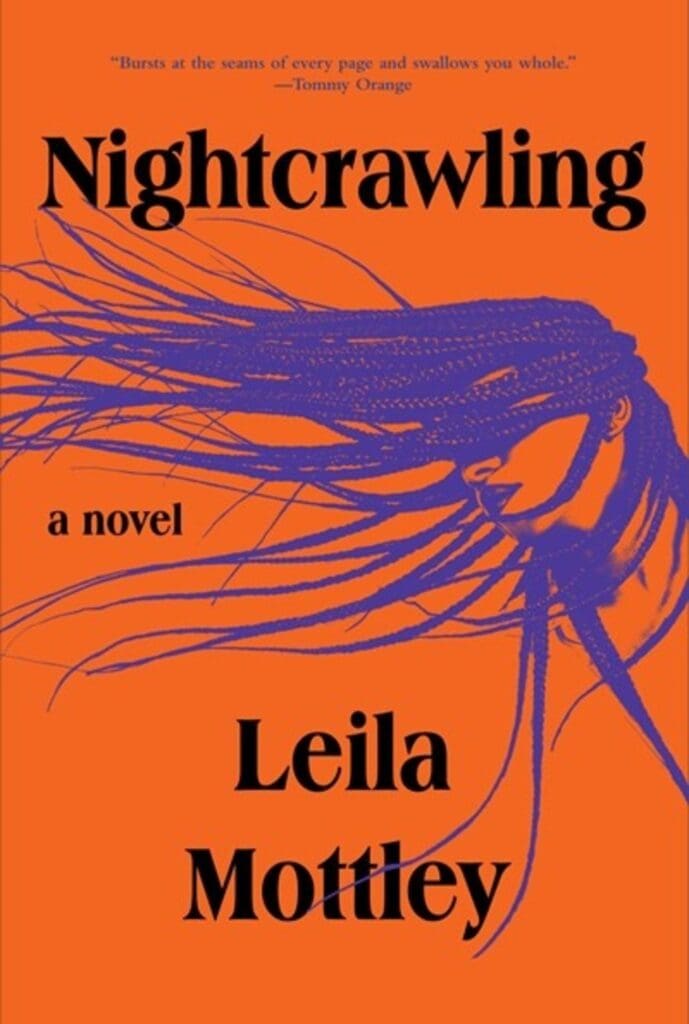Kiara Johnson, the scrappy protagonist of Leila Mottley’s transfixing first novel, Nightcrawling (288 pages; Knopf), lives in East Oakland, in an apartment complex called the Regal-Hi, where money is sparse and trauma is abundant. Kiara’s father died years before; her mother’s currently in a halfway house following a prison stint; and her older brother, Marcus, who is also her legal guardian (Kiara is seventeen when the novel begins), is pursuing a rap career in lieu of a job that might help pay the rent—which has also recently more than doubled.
Beyond her fears of eviction and homelessness, Kiara is pulled to care for her nine-year-old neighbor, Trevor, whom she loves and whose mother has all but abandoned him. Kiara’s days involve dropping Trevor at the bus stop, wandering the city, looking for work (unsuccessfully), and occasionally spending time with her best friend, Alé, who feeds Kiara delicious Mexican food from her family’s restaurant. As the novel starts, the two friends are celebrating a “funeral day,” in which they go to one of the many East Oakland funeral homes to steal food and clothes, an activity that will feel touching and innocent compared to the direction Kiara’s life will soon take. Almost by chance, Kiara slips into sex work, which she hopes will be a temporary solution to her financial woes. She is able to pay the rent and buy Trevor a new basketball and there is a feeling of calm, maybe even hope.
While working one night, Kiara is picked up by a group of Oakland policemen, who begin to traffic her among themselves, sometimes paying her and sometimes not, though always blackmailing her with threats to arrest her and ruin her life. Mottley’s beautiful, pained descriptions of the abuse Kiara endures at the hands of the police are one of the most potent, horrifying aspects of the novel:
They take turns and sex feels no different from an insistent punch to my gut. The cops believe they are invincible. They want me only to show themselves they can have me, that there will be no consequence to putting a gun to my head, to taking me. They want me to feel small so they can feel big and, in this moment, they have succeeded.
The strength of Nightcrawling is in Kiara’s embodiment and understanding of herself, of the way generations of pain wash through the people she loves and the streets around her, and of the honest, heartfelt experiences of joy and love she has with Trevor and Alé, despite all she goes through. The novel moves between the worlds of child- and adulthood as Kiara’s body becomes her means for survival, her age an arbitrary marker as she turns eighteen and slips deeper into a situation she has little control over. When one of the cops commits suicide, implicating her in his suicide note, Kiara is embroiled in a high-profile legal case. (As mentioned in Mottley’s Author’s Note, Kiara’s story is modeled on the 2015 suicide of an Oakland Police Department officer whose death would implicate Oakland and other Bay Area police departments in sexually exploiting a young woman.) But as she prepares to testify to a grand jury and tell them all she knows, Kiara conveniently receives a settlement and a snappy pro bono lawyer.
Mottley was the 2018 Oakland Youth Poet Laureate, and her poetic background shines in the fragmented, vivid, and lyrical descriptions of her characters and setting, and especially that of Oakland, making the city and its neighborhoods both recognizable and new to even those who grew up there:
Walking in downtown Oakland is like trying to find your footing on an ocean floor. Everything is big here, not like back home in East [Oakland], where we keep our buildings low to the ground and our feet to the sidewalk. In downtown, it feels like everything is airborne or underground. Like if there was a compass, we’d all be levitating above directionality…Now there are too many cafés on these streets, too many of the same faces bent at the neck because, in downtown, nobody gives a shit where they’re walking, who they might bump into or stumble over. They’ve got their heads in a screen, their shoes laced so tight I bet their feet have gone numb.
Oakland proves as significant to Kiara as the most important people in her life: it has an edge that strips her of her childhood early on and, yet, she can’t not love it, even as she comments on the gentrification and changes that consume it. Oakland negotiates its own terms: not relative to San Francisco, as it’s often represented by outsiders, but relative only to itself. There are many defining motifs in Nightcrawling: the potholes, the roaring buses, the way the sun shines and the light looks, the Regal-Hi swimming pool, which Kiara refers to as the “shit pool” after Trevor’s mom’s boyfriend dumps dog excrement into it.
“Every time I leave Oakland I miss the trees,” she says at one point, when she goes to visit her mother in Stockton. It is a sentiment that strikes as hot as the novel itself, seen in the way Kiara returns to the people, to the place, that have hurt her, yet never ceasing to look for beauty and connection.

